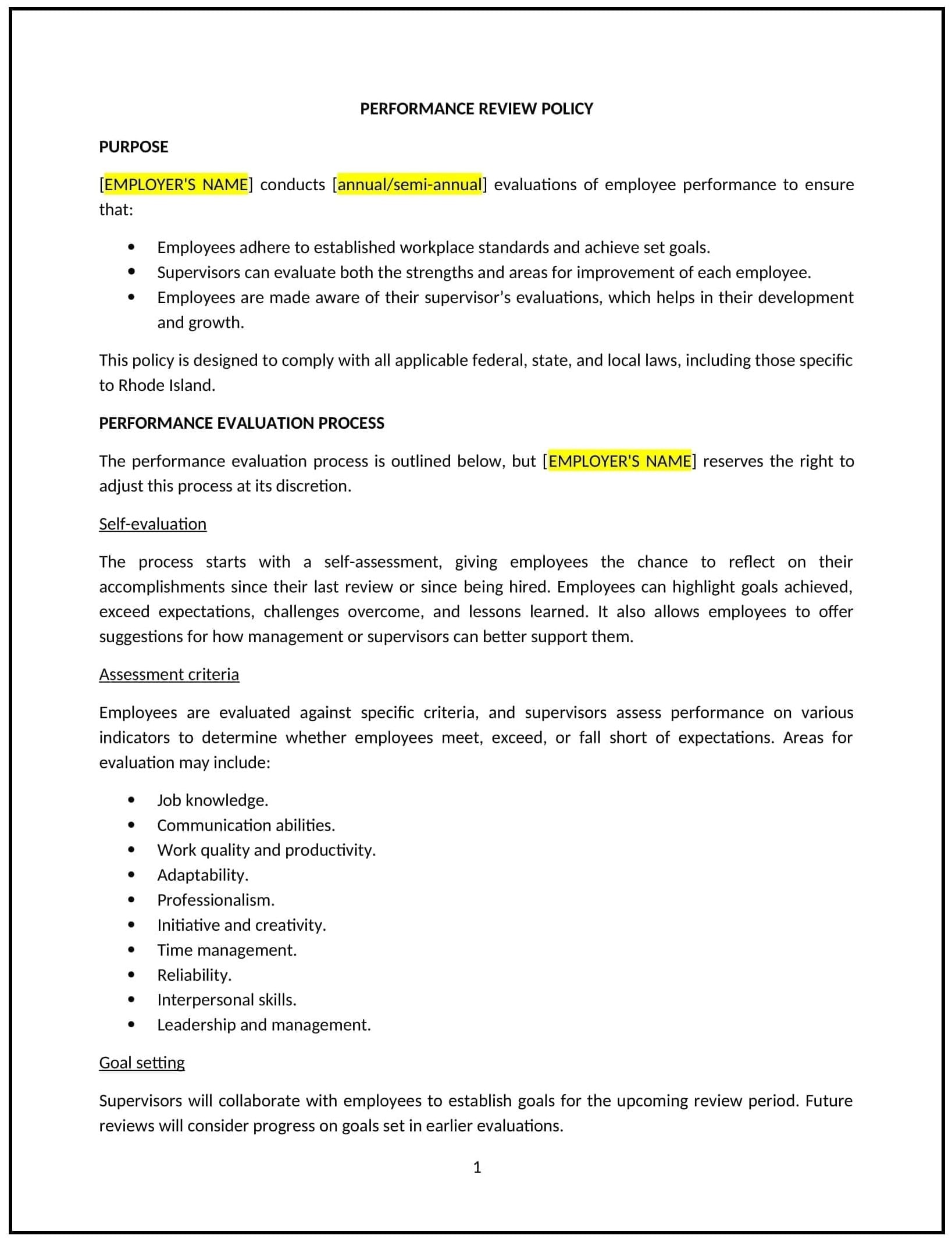Performance review policy (Rhode Island): Free template
Got contracts to review? While you're here for policies, let Cobrief make contract review effortless—start your free review now.

Customize this template for free
Performance review policy (Rhode Island)
This performance review policy is designed to help Rhode Island businesses establish guidelines for evaluating employee performance. It outlines procedures for conducting reviews, setting goals, and providing feedback.
By adopting this policy, businesses can promote employee development, improve productivity, and address performance issues effectively.
How to use this performance review policy (Rhode Island)
- Define scope: Clarify which employees are subject to performance reviews and the frequency of reviews.
- Establish evaluation criteria: Outline the factors used to assess performance, such as job responsibilities, goals, and behavior.
- Set review procedures: Provide guidelines for conducting reviews, including self-assessments, manager evaluations, and feedback sessions.
- Address goal setting: Explain how performance goals will be set, tracked, and reviewed during evaluations.
- Communicate expectations: Share the policy with employees and include it in the employee handbook.
- Train managers: Educate supervisors on conducting fair and constructive performance reviews.
- Review and update: Assess the policy annually to ensure it aligns with evolving business needs and best practices.
Benefits of using this performance review policy (Rhode Island)
This policy offers several advantages for Rhode Island businesses:
- Promotes development: Provides employees with clear feedback and opportunities for growth.
- Improves productivity: Identifies strengths and areas for improvement, helping employees perform better.
- Enhances communication: Encourages open dialogue between employees and managers about performance expectations.
- Supports accountability: Establishes a consistent process for evaluating and addressing performance issues.
- Aligns with best practices: Offers a structured approach to performance management, fostering a positive workplace culture.
Tips for using this performance review policy (Rhode Island)
- Communicate the policy: Share the policy with employees and include it in the employee handbook.
- Provide training: Educate managers on conducting fair and constructive performance reviews.
- Monitor compliance: Regularly review performance evaluations to ensure adherence to the policy.
- Address issues promptly: Take corrective action if performance issues are identified or reviews are mishandled.
- Update regularly: Assess the policy annually to ensure it aligns with evolving business needs and best practices.